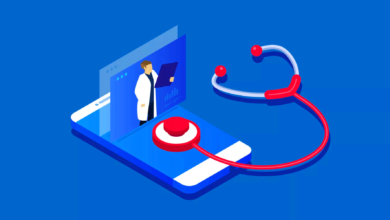The Impact of Sugar on Anxiety and Depression

In today’s fast-paced world, where sugary snacks and beverages are readily available, the relationship between sugar consumption and mental health has become a matter of increasing concern. Research has shown that the sweet treats we often indulge in may have a more profound impact than we realize, affecting not only our physical well-being but also our emotional and mental states. In this exploration of “The Impact of Sugar on Anxiety and Depression,” we delve into the complex connection between sugar intake and these prevalent mental health conditions.
Sugar’s Role in Mental Health
The first thing to understand is that sugar isn’t just a contributor to physical health issues like obesity and diabetes; it also plays a significant role in our psychological well-being. Studies have indicated that excessive sugar consumption can lead to fluctuations in blood sugar levels, which, in turn, can trigger mood swings, irritability, and even anxiety. Moreover, the addictive nature of sugar can result in a cycle of cravings and crashes that can exacerbate feelings of unease and sadness. In this article, we will explore the mechanisms through which sugar affects anxiety and depression, shedding light on the importance of mindful sugar consumption for overall mental wellness.
Sugar: A Sweet Deceiver
Sugar, in its various forms, has long been a staple in our diets, adding sweetness to our favorite treats and beverages. It’s hard to resist the allure of a sugary dessert or a refreshing soda, but beneath its pleasant taste lies a deceptive nature that can impact our mental health.
The Types of Sugar
To truly comprehend the impact of sugar on our well-being, it’s essential to distinguish between the different types of sugar commonly found in our diets:
Sucrose (Table Sugar):
Sucrose is what we typically think of as table sugar. It’s composed of equal parts glucose and fructose and is commonly used to sweeten a wide range of foods and drinks.
Glucose:
Glucose is a simple sugar that our bodies use as a primary source of energy. It’s found naturally in many foods, including fruits, vegetables, and carbohydrates.
Fructose:
Fructose is another natural sugar, primarily found in fruits and honey. It’s also a component of high-fructose corn syrup (HFCS), a common sweetener used in processed foods and sugary drinks.
High-Fructose Corn Syrup (HFCS):
HFCS is an artificial sweetener derived from corn starch. It’s widely used in the food industry to sweeten soft drinks, baked goods, and various processed foods.
Understanding these different types of sugar is crucial because they have distinct effects on our bodies when consumed.
Read More: Sugar’s Harmful Effects: What You Need to Know
The Sugar-Brain Connection
Now, let’s explore the intricate relationship between sugar and our brain. Sugar has a direct influence on various brain functions, including mood regulation, cognitive processes, and even addiction-like behaviors.
When we consume sugar, especially in its refined form as sucrose or HFCS, it quickly enters our bloodstream. This rapid spike in blood sugar levels can lead to a short-lived burst of energy and a temporary feeling of euphoria. However, this surge is often followed by a steep crash in blood sugar levels, leaving us feeling fatigued, irritable, and craving more sugar to regain that pleasurable sensation.
Additionally, sugar stimulates the release of dopamine, a neurotransmitter associated with pleasure and reward. This is why sugary foods can be so addictive – our brains learn to associate sugar consumption with feelings of happiness, prompting us to seek it out repeatedly.
The connection between sugar and the brain is not limited to immediate mood swings and cravings. Prolonged excessive sugar intake has been linked to more profound and lasting effects on mental health, particularly in relation to anxiety and depression.
Sugar’s Impact on Anxiety
Blood Sugar Rollercoaster
Consuming sugary foods and beverages can lead to rapid spikes and subsequent crashes in blood sugar levels. These fluctuations can trigger symptoms of anxiety, including restlessness, irritability, and nervousness.
Inflammation and Neurotransmitters
Furthermore, excessive sugar intake can promote inflammation in the body, which has been linked to heightened anxiety. Additionally, sugar can disrupt the balance of neurotransmitters, such as serotonin and dopamine, which play key roles in mood regulation.
Sugar’s Influence on Depression
The Serotonin Connection
Serotonin, often referred to as the “feel-good” neurotransmitter, is deeply intertwined with depression. Sugar consumption can negatively impact serotonin levels, potentially contributing to depressive symptoms.
Oxidative Stress and Inflammation
Sugar also contributes to oxidative stress and chronic inflammation, both of which have been associated with depression. This dual effect further highlights the concerning relationship between sugar and mental health.
The Vicious Cycle: Sugar, Anxiety, and Depression
Impact of Sugar on Anxiety: As we’ve seen, sugar can independently exacerbate both anxiety and depression. However, the relationship between these conditions is complex and often interlinked. High sugar intake can create a vicious cycle, where anxiety leads to increased sugar consumption, which, in turn, worsens depression.
The Role of Diet in Mental Health
Impact of Sugar on Anxiety: A growing body of research suggests that our dietary choices play a significant role in determining our mental health. While we’ve established the connection between sugar and anxiety and depression, it’s essential to understand how our overall diet can impact our emotional well-being.
The Mediterranean Diet
Impact of Sugar on Anxiety: One dietary approach that has garnered attention for its positive influence on mental health is the Mediterranean diet. This eating pattern is characterized by:
- Abundant consumption of fruits and vegetables, providing essential vitamins and minerals that support brain function.
- High intake of whole grains, which provide a steady release of energy and help stabilize mood.
- A focus on healthy fats, particularly monounsaturated fats found in olive oil and fatty fish like salmon. These fats are associated with improved brain health.
- Moderate consumption of lean proteins, such as poultry and legumes.
- Limited red meat intake, which can reduce inflammation associated with mood disorders.
- Occasional consumption of red wine, which contains antioxidants that may protect the brain.
Research has shown that adhering to a Mediterranean diet can reduce the risk of depression and anxiety. The nutrients and antioxidants in this diet contribute to better brain health, reduce inflammation, and support the production of neurotransmitters that regulate mood.
Cutting Down on Sugar
Impact of Sugar on Anxiety: While adopting a Mediterranean diet is a proactive step toward improving mental health, it’s essential to specifically address the role of sugar in your diet. Reducing sugar intake can be challenging, given its prevalence in many processed foods. However, it’s a crucial step in managing anxiety and depression.
By gradually reducing your consumption of sugary snacks, desserts, and sugary beverages, you can minimize the blood sugar spikes and crashes that exacerbate mood swings. Instead, focus on whole, unprocessed foods that provide a steady source of energy and essential nutrients.
Remember that moderation is key. You don’t have to eliminate sugar entirely, but being mindful of your consumption and opting for healthier alternatives can go a long way in supporting your mental well-being.
Practical Tips for Reducing Sugar Intake
Impact of Sugar on Anxiety: We understand that cutting sugar can be challenging. Here are some practical tips to help you reduce your sugar consumption without feeling deprived.
The Mind-Gut Connection
Impact of Sugar on Anxiety: Emerging research also suggests a strong connection between gut health and mental well-being. Maintaining a healthy gut microbiome through a balanced diet can positively influence mood and reduce the impact of sugar on anxiety and depression.
Exercise: A Natural Mood Enhancer
Impact of Sugar on Anxiety: Regular physical activity is a potent mood enhancer. Exercise releases endorphins, the body’s natural mood lifters, and can counteract some of the negative effects of sugar on mental health.
Sleep and Stress Management
Impact of Sugar on Anxiety: Adequate sleep and effective stress management are essential components of maintaining mental well-being. Sugar can disrupt sleep patterns and increase stress levels, making their management even more crucial.
Seeking Professional Help
Impact of Sugar on Anxiety: If you or someone you know is struggling with anxiety or depression, seeking professional help is essential. Mental health professionals can provide guidance, therapy, and treatment options tailored to individual needs.
Personal Stories: Triumph Over Sugar-Related Mental Health Issues
Impact of Sugar on Anxiety: Real-life stories of individuals who have successfully overcome sugar-related anxiety and depression can offer inspiration and practical insights for those on a similar journey.
Read More: Practical Strategies for Managing Blood Sugar Level
Conclusion
In conclusion, sugar’s impact on anxiety and depression should not be underestimated. Its ability to disrupt blood sugar levels, trigger inflammation, and affect neurotransmitters can worsen these mental health conditions. However, by adopting a balanced diet, reducing sugar intake, and making lifestyle changes, individuals can take significant steps toward better mental well-being.
article will delve into the intricate relationship between sugar and mental health. We will explore how excessive sugar intake can exacerbate anxiety and depression, affecting our physical well-being and emotional stability. Join us on this journey as we uncover the hidden dangers lurking in your sweet treats.
Q1: Can cutting out sugar completely cure anxiety and depression?
A1: While reducing sugar intake can have a positive impact on anxiety and depression, it’s essential to understand that mental health is a complex interplay of various factors, including genetics, environment, and lifestyle.
Q2: Are artificial sweeteners a better alternative to sugar for mental health?
A2: Artificial sweeteners, such as aspartame and saccharin, are low-calorie alternatives to sugar and can be useful for those looking to reduce their calorie intake. However, their impact on mental health is still a subject of research.
Q3: How long does it take to notice improvements in mental health after reducing sugar intake?
A3: The timeline for noticing improvements in mental health after reducing sugar intake can vary from person to person. Some individuals may experience positive changes in mood and energy levels within a few weeks, while others may take longer.
Q4: What role does caffeine play in the relationship between sugar and mental health?
A4: Caffeine is a stimulant found in coffee, tea, and many soft drinks. It can temporarily increase alertness and energy but may also lead to jitteriness and anxiety, especially in high doses.
Q5: Can sugar cravings be a sign of underlying mental health issues?
A5: Sugar cravings can sometimes be linked to emotional factors. Some individuals may turn to sugary foods as a way to cope with stress, anxiety, or depression.







